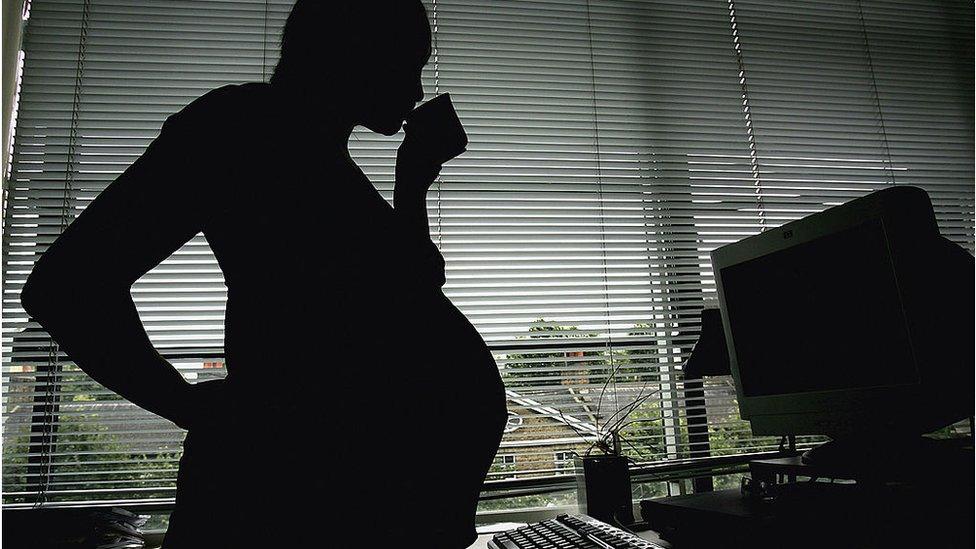Abortion: Georgia offers tax credits for six-week-old embryos
- Published

Georgia residents can now claim embryos as dependents on their tax returns, after the state banned most abortions.
Taxpayers filing from 20 July or after, when Georgia banned abortions after six weeks of pregnancy, can now receive up to $3,000 (£2,500) in tax credits.
Tax filers may be asked to provide documents proving that the embryo has a "detectable human heartbeat".
The US Supreme Court in June reversed the 1973 ruling that guaranteed abortion rights.
A statement from the Georgia Department of Revenue on Monday said it "will recognise any unborn child with a detectable human heartbeat... as eligible for the Georgia individual income tax dependent exemption".
The agency said the decision was made following the court case on 20 July that permitted Georgia's ban on abortion after six weeks to take effect.
Many women do not know they are pregnant at six weeks of gestation. Medical authorities dismiss the notion of a foetal "heartbeat" as misleading.
The American College of Obstetricians and Gynaecologists has said that what is being detected at this stage is "a portion of the foetal tissue that will become the heart as the embryo develops".
In a press statement, the tax agency said: "Similar to any other deduction claimed on an income tax return, relevant medical records or other supporting documentation shall be provided to support the dependent deduction claimed if requested by the Department."
Legal analysts have noted that it is unclear what will happen if a pregnancy ends after six weeks due to natural miscarriage.
"Given how high the percentage of pregnancies that result in natural miscarriages, the treasury is going to be handing out a lot of cash for pregnancies that would never come to term," tweeted Georgia State University law professor Anthony Michael Kreis.
Last month, an expecting mother in Texas made national headlines after she argued against a fine for driving in a high-occupancy carpool lane.
Brandy Bottone was given a ticket when an officer rejected her claim that her fetus counted as a passenger. "My baby is right here. She is a person," she said she told the officer.
Around half of US states have issued new abortion bans, or plan to issue further restrictions, following the Supreme Court's reversal of Roe v Wade after nearly five decades.
On Tuesday, the Biden administration sued to block a strict rule from coming into effect in Idaho later this month which would make it nearly impossible to get an abortion.
The lawsuit, filed by the US Department of Justice, is the first legal manoeuvre filed by the Biden administration against a state over abortion.
"If a patient comes into the emergency room with a medical emergency jeopardising the patient's life or health, the hospital must provide the treatment necessary to stabilize that patient," Attorney General Merrick Garland said in the lawsuit.
"This includes abortion when that is the necessary treatment."
Related topics
- Published11 July 2022

- Published12 July 2022

- Published7 July 2022
